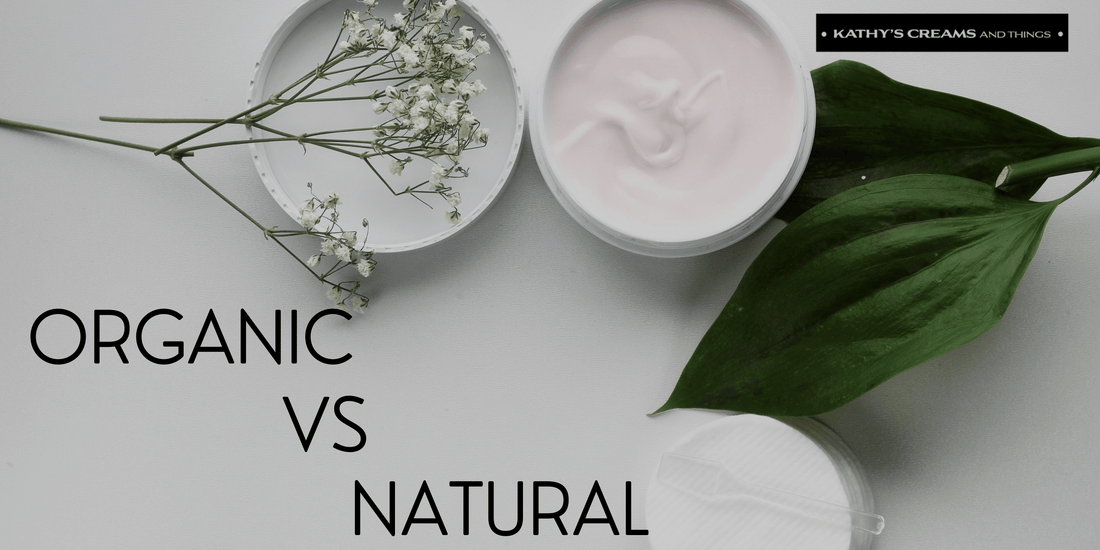
Organic vs Natural Skincare Products: What’s the Difference?
Share
In recent years, there has been an increasing trend towards natural and organic skincare products. This shift in consumer behavior is motivated by a growing concern for the environment and personal health. However, the terms “organic” and “natural” are often used interchangeably, leading to confusion among consumers. In this blog post, we will explore the differences between organic and natural skincare products and help you understand which one might be right for you.
The term “organic” refers to skincare products that are made from natural ingredients that have been grown without the use of synthetic pesticides and fertilizers. These ingredients are often sourced from organic farms, which means they have been grown in ways that are environmentally friendly and sustainable. Organic skincare products are also required to meet certain certification standards before they can be sold to consumers. Some examples of organic ingredients commonly used in skincare products include aloe vera, lavender, and rosehip oil.
On the other hand, “natural” skincare products refer to those that are made from ingredients that come directly from nature. These ingredients may or may not be grown organically. Natural skincare products may also contain synthetic ingredients, but in much smaller quantities than traditional skincare products. Some popular natural ingredients used in skincare products include coconut oil, shea butter, and jojoba oil.
One of the main differences between organic and natural skincare products is how they are regulated. Organic products are held to higher standards and must be certified by a third-party agency, while natural products are not subject to the same level of scrutiny. Furthermore, organic products are required to have a certain percentage of organic ingredients, whereas this is not necessarily the case for natural products.
Another difference between these two types of skincare products is their efficacy. While both organic and natural products can be healthy for your skin, organic products tend to be more effective because of the high level of standards to which they are held. Organic products are often more concentrated, which means they contain higher concentrations of the active ingredients. This can lead to better results.
However, it is important to note that natural products can still be very beneficial for your skin. Many natural ingredients have antioxidant and anti-inflammatory properties, which can help reduce inflammation and protect against environmental damage. Natural products are also often less likely to cause allergic reactions or other side effects, making them a safer choice for some people with sensitive skin.
In conclusion, both organic and natural skincare products have their advantages and disadvantages. If you are looking for a product that is environmentally friendly and has been grown without chemicals, then organic skincare products may be the better choice for you. On the other hand, if you are looking for products made from natural ingredients that are gentle on your skin, then natural skincare products may be a better option. Ultimately, the choice is up to you and will depend on your personal preferences and skincare needs. Regardless of which type of product you choose, it is important to do your research, read labels, and understand what you are putting on your skin.
The term “organic” refers to skincare products that are made from natural ingredients that have been grown without the use of synthetic pesticides and fertilizers. These ingredients are often sourced from organic farms, which means they have been grown in ways that are environmentally friendly and sustainable. Organic skincare products are also required to meet certain certification standards before they can be sold to consumers. Some examples of organic ingredients commonly used in skincare products include aloe vera, lavender, and rosehip oil.
On the other hand, “natural” skincare products refer to those that are made from ingredients that come directly from nature. These ingredients may or may not be grown organically. Natural skincare products may also contain synthetic ingredients, but in much smaller quantities than traditional skincare products. Some popular natural ingredients used in skincare products include coconut oil, shea butter, and jojoba oil.
One of the main differences between organic and natural skincare products is how they are regulated. Organic products are held to higher standards and must be certified by a third-party agency, while natural products are not subject to the same level of scrutiny. Furthermore, organic products are required to have a certain percentage of organic ingredients, whereas this is not necessarily the case for natural products.
Another difference between these two types of skincare products is their efficacy. While both organic and natural products can be healthy for your skin, organic products tend to be more effective because of the high level of standards to which they are held. Organic products are often more concentrated, which means they contain higher concentrations of the active ingredients. This can lead to better results.
However, it is important to note that natural products can still be very beneficial for your skin. Many natural ingredients have antioxidant and anti-inflammatory properties, which can help reduce inflammation and protect against environmental damage. Natural products are also often less likely to cause allergic reactions or other side effects, making them a safer choice for some people with sensitive skin.
In conclusion, both organic and natural skincare products have their advantages and disadvantages. If you are looking for a product that is environmentally friendly and has been grown without chemicals, then organic skincare products may be the better choice for you. On the other hand, if you are looking for products made from natural ingredients that are gentle on your skin, then natural skincare products may be a better option. Ultimately, the choice is up to you and will depend on your personal preferences and skincare needs. Regardless of which type of product you choose, it is important to do your research, read labels, and understand what you are putting on your skin.
